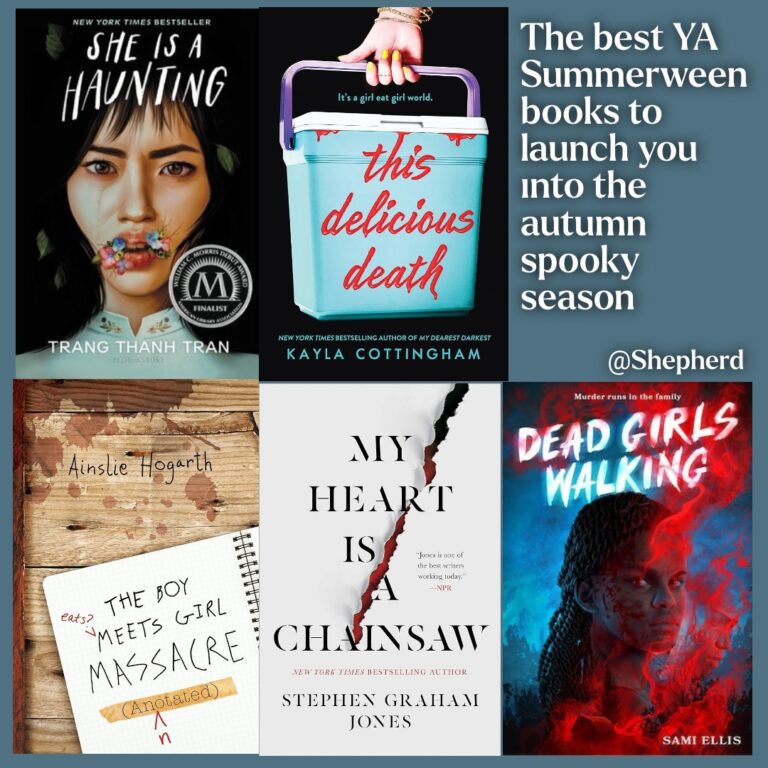Start the week with my list of the best, in my humble opinion, YA Summerween books to launch you into the autumn spooky season! Shepherd published my little listicle that highlights some of my favorite young adult horror books that are set in and/or published in the summer, and if you disagree with me on any of these, do go and read why I’ve chosen them! Whatever your own opinions are, this was a really fun exercise–in considering what YA horror is as well as what counts as YA horror!
Apparently it’s a bone of contention around what counts as YA horror. Stephen Graham Jones’ book, for instance is not officially (from a marketing point of view) considered YA horror, despite the fact that his protagonist is a senior in high school when the book begins–her high school graduation is a thing that happens. As far as I’m concerned, that’s YA (although I understand the protagonist isn’t high school-aged as the series progresses, so maybe that’s why it’s not considered YA? I dunno). I have a similar argument about Justin Evans’ book The White Devil: the characters are primarily teens at a board school. I suppose the author can simply say, yeah, I wrote about high school aged kids, but I didn’t write this book for them–and that’s that. There’s an argument to be made there around authorly intent, although there’s just as powerful an argument to be made that it’s insulting to say this was written about you, but it’s not for you because you’re not mature enough, or you’re not smart enough, or you’re not [insert reason here] enough. Part of why I consider a book YA if it has a YA protagonist is my own experience as a reader in my teens–YA lit wasn’t an overly developed category in the 1980s, so it was limited to things like the Nancy Drew and Sweet Valley High series, Paul Zindel and Robert Cormier books, some Beverly Cleary and Judy Blume (although, hey, Forever, right?). There was no YA horror, except for maybe Lois Duncan. I liked Duncan well enough–I mean, a book about three high-school students’ murder of their English teacher is pretty appealing for someone who likes a morally gray protagonist. But it always puzzled me why, say, Stephen King’s Carrie wasn’t considered YA. I read them both about the same time, and there wasn’t much of a difference to me. Semantics, right?
But that does bring up a good point: is there such a thing as too dark for a YA novel? I have things to say about Moms 4 Liberty here that would be a tangent and very sarcastic and cynical, so I’ll spare you. Looking at the books I’ve chosen for my list at Shepherd, four out of five are pretty grisly and half involve morally gray protagonists who are, on some level, also killers (and in some cases cannibals). Interestingly, the television series Dexter was officially NOT meant for teens under the age of 16–and, anecdotally, it seems like the Darkly Dreaming Dexter series are beloved by your average 14-year-old who reads horror. Again, this is my own experience as a reader, but as a kid I wanted morally gray and bloody books, which is probably why I read a lot of Stephen King when I was ten or eleven. I never came up against a ceiling for myself, but the teenagers in my life seem pretty capable of deciding quickly if something is right or wrong for them–and they don’t seem particularly excited about not having the agency to make that choice themselves.
So yeah, fun exercise! It would make a really fascinating academic paper–I’d be surprised if scholarship doesn’t already exist about it. Looks like I’ll to spend some time on JSTOR later!

